Data scientists have a hard job. All that math, every day, that's the easy part for you. You know how to do the job, but you don't know how to get it. With our guide to the resume format for a data scientist you can create the perfect resume that will help you get the job you are aiming for.
Let us make one aspect of your life easier for you. Try our resume builder for free.
Here's what you'll learn to do,
- Format your resume,
- Add your personal details,
- Write a summary,
- Include work experience,
- Talk about your education,
- Show off your skills,
- Add other important sections.
1. Format your resume
As a data scientist, you probably appreciate it when the data is clearly understandable. Hiring managers are the same. They much prefer it if your resume is clearly legible and easy to read. The best format to use is the reverse chronological as it is the most used format and therefore the one hiring managers have the best experience with. You can also use the functional format if you are less experienced or the combination format if you are extremely experienced.
Best example for a resume format for data scientists
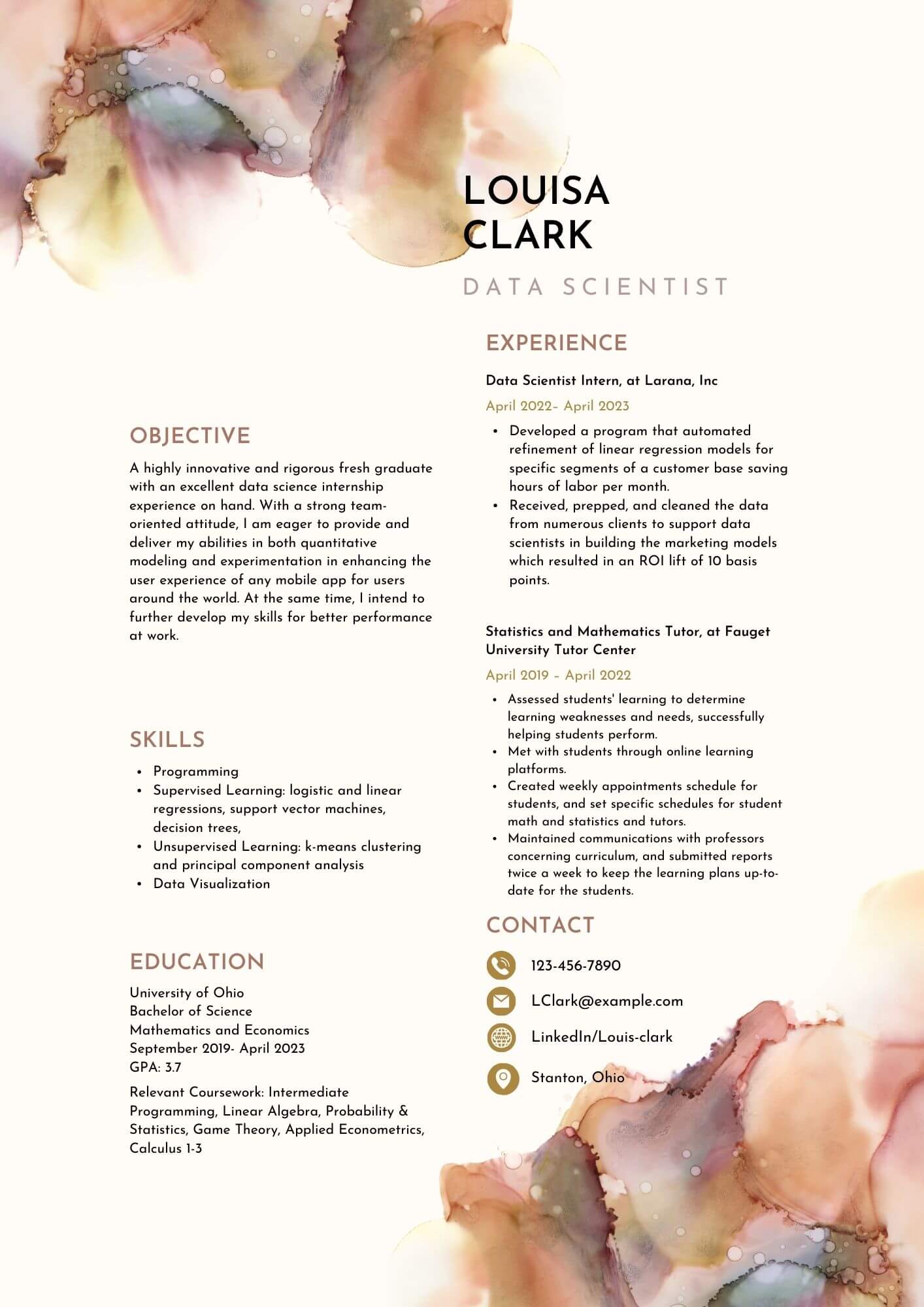
2. Add your personal details
Your personal details need to be accurate because you want to ensure that if the hiring manager wants to get in touch, they can. You don’t need to include many details; just your name, email address and telephone number is fine. You can also include a link to a professional profile like LinkedIn or your mailing address in City, State format if you wish. To make your resume stand out you can include your title; that is Data Scientist in this section as well.
How to include your personal details in a resume

3. Write a summary
Hiring managers take no longer than a few seconds to determine if they’ll go through your whole resume or not. So, you need something to grab their attention. An attractive resume summary is the way to go in this instance. This should be two or three short sentences that highlight your experience and why you are a good fit for the company. Or if you are a fresh graduate, it could be a resume objective that shows the path that you want your career to take. Try using keywords from the listing to ensure that you have the best chance of being noticed and passing ATS screening.
Not sure if your resume summary has keywords. Try our keyword finder tool to see whether your resume will pass ATS screening.
A well-written resume objective
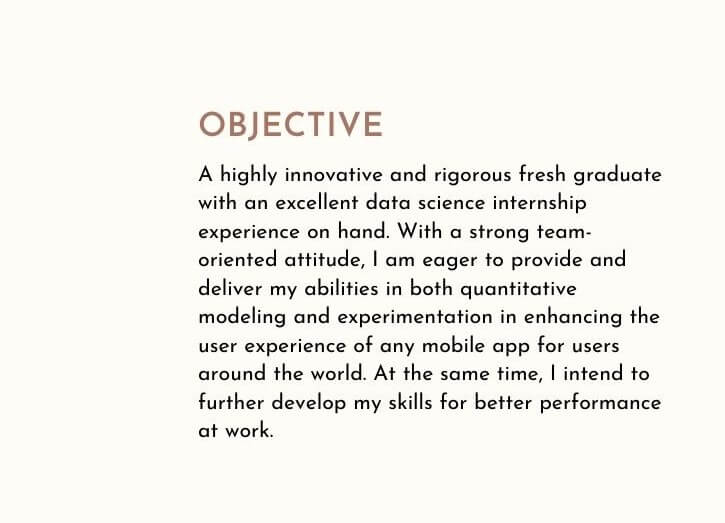
4. Include work experience
Your professional experience is a big selling point, especially for a job like data scientist. You should start with your current employment and work your way back for about 10-15 years. Remember to only include relevant experience. You should include the company that you worked at, how long you worked there, your title at the workplace and mention two or three key achievements in bullet points.
How to make your work experience stand out
There may be hundreds of candidates who have similar experience to yours and you need to stand out from the pack. One way to do that is by highlighting your key achievements in a quantifiable way. As a data scientist your work involves numbers so you should already know your statistics. Companies will also like knowing that you can back up the claims that you make in your CV with actual data points.
A good example for how to include work experience in your resume
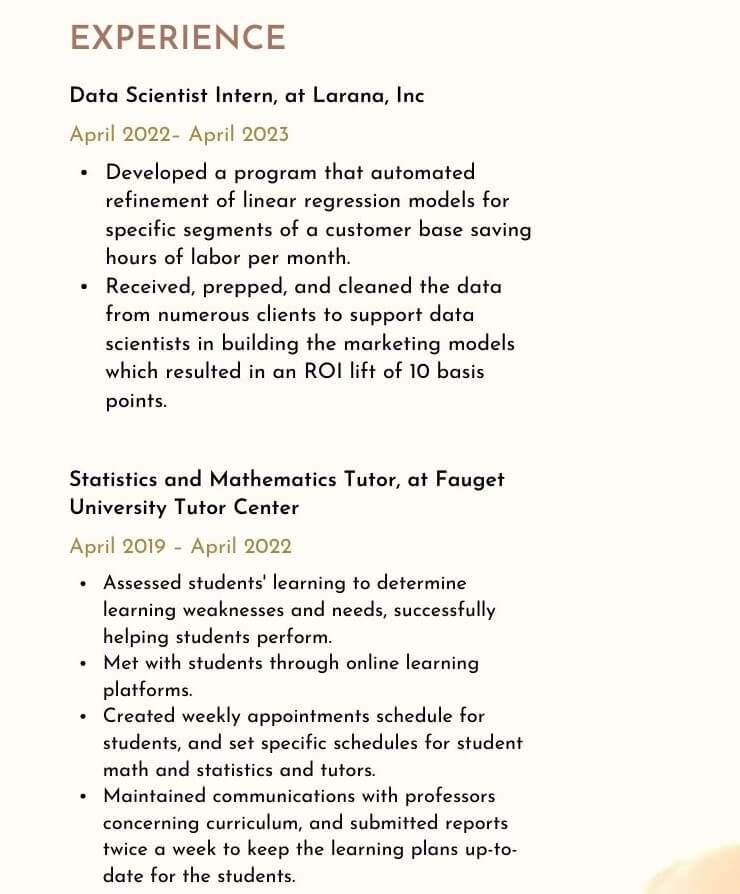
5. Talk about your education
Education is a valuable part of your CV. It shows that you have put in the time to understand how to do your job especially if part of your study includes things like statistics. Unless you are a fresh graduate, there is no reason to put your high school diploma on your resume. You can start by listing your college degree, the institution you studied at, how long you studied there and maybe a noteworthy achievement.
An example of a perfect resume education section
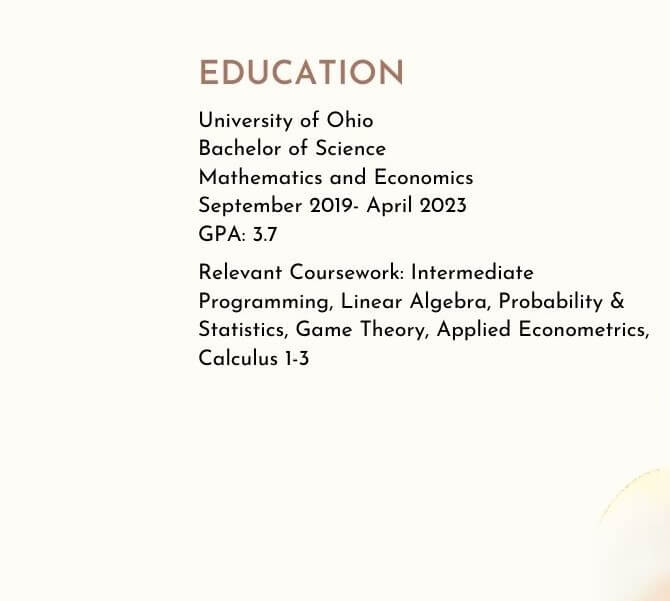
6. Show off your skills
If you are a newcomer to this field, either as a graduate or job shifter, you should concentrate on this section of your resume. Even as an experienced professional, you should pay particular attention to your skills section. Include a mixture of hard and soft skills so that companies see you as an all-rounder. In addition, mention your familiarity with any software tools that you can use in your job as companies will see that as a bonus.
Avoid buzzwords in your resume as that will negatively impact the hiring manager’s perception of you. Try our buzzword finder to make sure that your CV is buzzword free.
How to write a perfect skills section
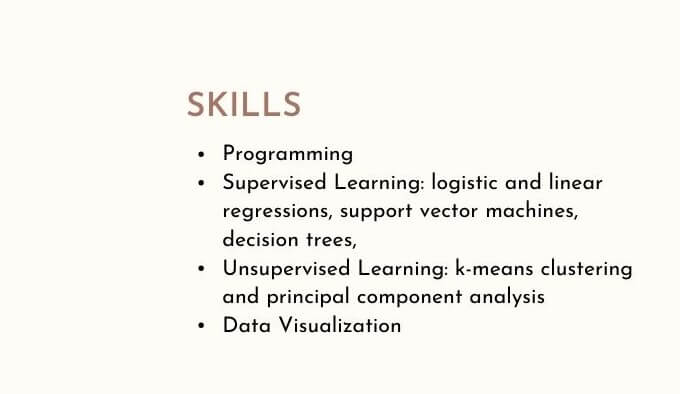
7. Add other important sections
These sections are optional but are simply there to boost your resume and make you stand out.
Certifications and Awards
Mentioning any extra relevant certifications that you have shown your enthusiasm for the job and that you have continued working. And an award is a great way to prove you can back up your claims.
Languages
Speaking another language might be a requirement for the role, especially if the job you are applying for is in another country. Mention the languages you know and your proficiency level as beginner, intermediate or fluent in reading, writing and speaking.
Hobbies and Interests
Hiring managers hire people not robots and this section is a great way to add a personal element to your resume. Mention your hobbies and interests in point form but don’t elaborate on it too much as you will only have limited space.
Now, why don’t you go ahead and create that Data Scientist resume or maybe see a few other resume tips on our career blog or resume samples page.

